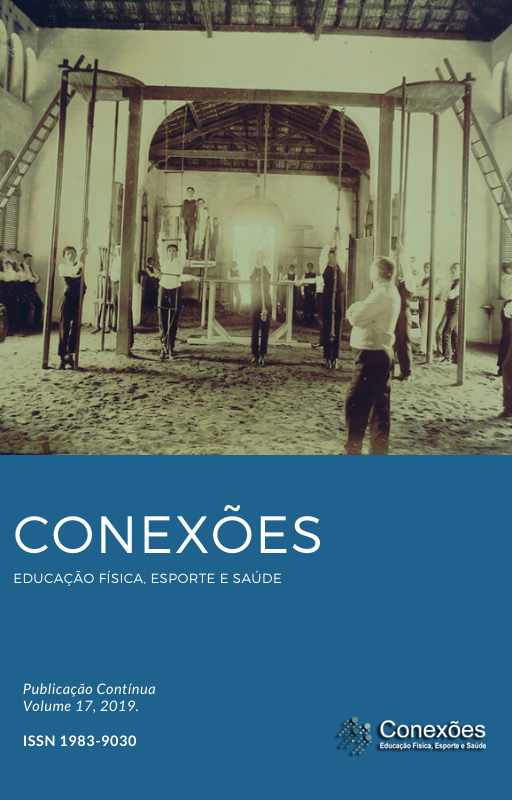Abstract
Objective: To present reflections concerning the School Curriculum of the city of Aracruz-ES from seven schools with raised Ideb in 2013. This paper seeks to problematize the idea of a single curriculum, highlighting some implications for the practices in the contexts situated and the search for recognition as a motivating element of the teacher's commitment to learning. Methods: We develop a research of ethnographic aspect. We establish analysis on the basis of the theory of the recognition of Honneth (2003). Results and discussion: We identify in the participant schools of the study, that the respect to the diversity and the idiosyncrasies foment a contextualized work, propitiating the collective construction of the Curriculum, condition that makes responsible and implies the citizens with the learning to if seeing contemplated at different moments of the process. Conclusion: This approaches the citizens of its objectives and desires in the experience of the Curriculum and potencialize the development of the mutual recognition, according to Honneth (2003).
References
BADIA, Denis Domeneghetti. Cultura, imaginário e escola. In. SOUZA, Rosa Fátima de; VALDEMARIN, Vera Teresa. A cultura escolar em debate: questões conceituais, metodológicas e desafios para a pesquisa. Campinas-SP: Autores Associados, 2005, p. 97-117.
BHABHA, Homi. K. O local da cultura. Belo Horizonte: Ed. UFMG, 1998.
BRASIL. Nota Técnica. Índice de desenvolvimento da educação básica. Disponível. em: http://download.inep.gov.br/educacao_basica/portal_ideb/o_que_e_o_ideb/Nota_Tecnica_n1_concepcaoIDEB.pdf. Acesso em: 14 ago. 2017.
BRACHT, Valter. Educação Física & ciência: cenas de um casamento (in)feliz. Ijuí: Ed. Unijuí, 2003.
CARVALHO, Janete. Magalhães. Pensando o currículo escolar a partir do outro que está em mim. In: FERRAÇO, C. E. (Org.) Cotidiano escolar, formação de professores(as) e currículo. São Paulo: Cortez, 2005, p. 94-111.
FERRAÇO, Carlos Eduardo. Currículo, formação continuada de professores e cotidiano escolar: fragmentos de complexidade das redes vividas. In: FERRAÇO, Carlos Eduardo. (Org.). Cotidiano escolar, formação de professores(as) e currículo. São Paulo: Cortez, 2005, p. 15-42.
GOMES, Nilma Lino. Diversidade e Currículo. In: (Org.) Beauchamp, Jeanete; Pagel, Sandra Denise; Nascimento, Aricélia Ribeiro do. Indagações sobre currículo: diversidade e currículo. Brasília: Ministério da Educação, Secretaria de Educação Básica, 2007. Disponível em: http://portal.mec.gov.br/seb/arquivos/pdf/Ensfund/indag4.pdf. Acesso em: 17 out. 2016.
HAMMERSLEY, Martin.; ATKINSON, Paul. Etnografía: métodos de investigación. 2 ed. Barcelona: Paidós, 1994.
HONNETH, Axel. Luta por reconhecimento: a gramática moral dos conflitos sociais. São Paulo: Ed. 34, 2003.
MOREIRA, Antônio Flávio Barbosa; CANDAU, Vera Maria. Currículo, conhecimento e cultura. In: (Org.) Beauchamp, J.; Pagel, S. D.; Nascimento, A. R. Indagações sobre currículo: currículo, conhecimento e cultura. Brasília: Ministério da Educação, Secretaria de Educação Básica, 2007, p. 17-48. Disponível em: http://portal.mec.gov.br/seb/arquivos/pdf/Ensfund/indag3.pdf. Acesso em: 17 out. 2016.
MOREIRA, Antônio Flávio Barbosa; CARVALHO M. Construção de identidades no currículo de uma escola de ensino fundamental. In: MOREIRA, Antônio Flávio Barbosa; CANDAU, Vera Maria. (Org.). Currículos, disciplinas escolares e culturas. Petrópolis, RJ: Vozes, 2014.
SACRISTÁN, J. Gimeno. O currículo: uma reflexão sobre a prática. 3 ed. Porto Alegre: ArtMed, 2000.
The Conexões: Educação Física, Esporte e Saúde Journal uses the license of Creative Commons (CC), thus preserving the integrity of articles in an open access environment.


